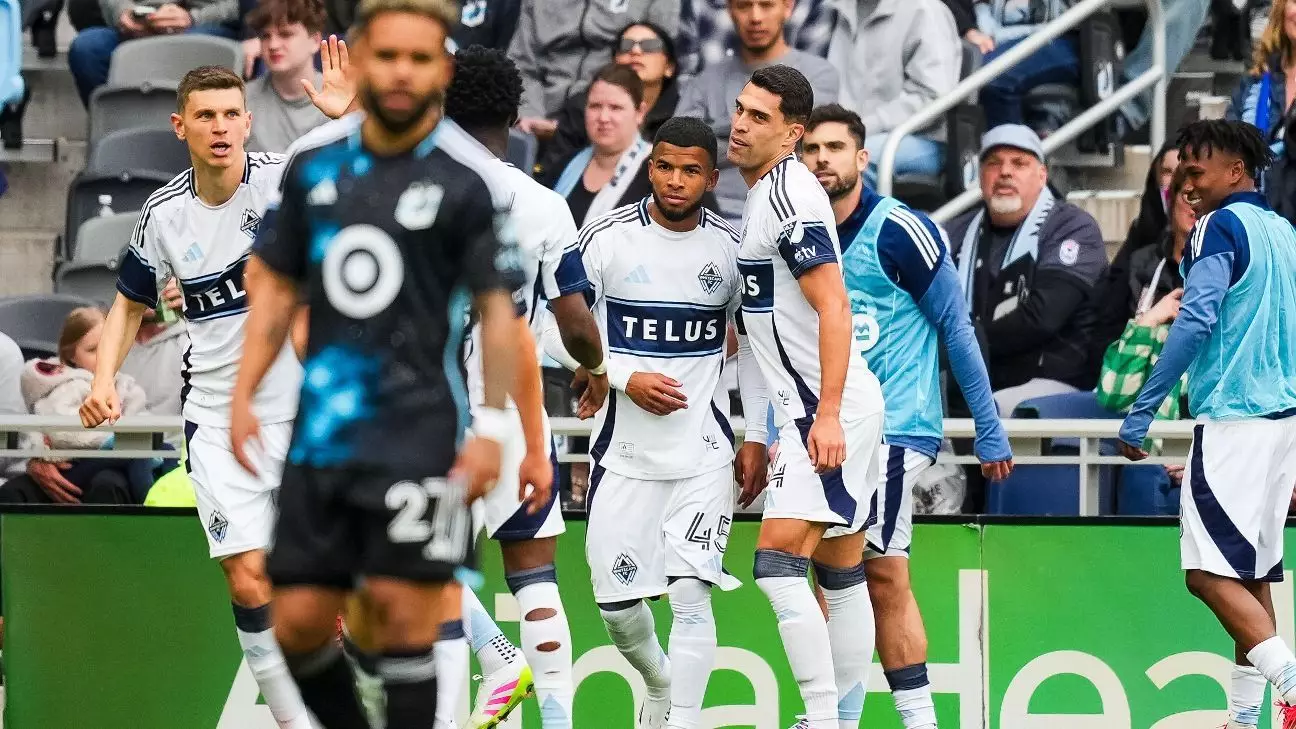In a sport celebrated for its passion and competitive spirit, the recent clash during the match between Minnesota United FC and the Vancouver Whitecaps sheds light on an unsettling reality—a reported violation of Major League Soccer’s (MLS) Non-Discrimination Policy. This incident highlights a critical juncture for the league as it grapples with the dual challenge of maintaining its competitive integrity while promoting an environment that is inclusive and free from harassment. The late-game altercation showcased troubling verbal confrontations between players that escalated tensions far beyond mere competition.
During the 95th minute of the match, the league was thrust into the spotlight not for an awe-inspiring goal or a daring save, but for a debacle that has become all too familiar in professional sports. As tensions flared, player Joseph Rosales and Vancouver’s Emmanuel Sabbi exchanged heated words, leading referee Drew Fischer to invoke a necessary protocol aimed at addressing discriminatory behavior. While the absence of direct sanctions against Rosales suggests ambiguity surrounding the situation, it does raise questions about the effectiveness of the existing policy and the league’s ability to enforce it.
Fostering Accountability: A League Under Scrutiny
MLS’s move to initiate a thorough review demonstrates an increasing recognition of the importance of accountability in professional sports. This commitment cannot be overstated, as it represents a turning point for a league that has faced its share of controversy over discriminatory remarks and behavior. Acknowledging these instances and taking action is crucial, yet it remains to be seen whether retrospective actions will suffice, or if more systemic changes are needed for sustainable progress.
The league’s history illustrates this lingering issue; it is not simply a matter of one-off incidents but rather a pattern that calls for serious introspection. The past suspensions of players such as Kai Wagner and Dante Vanzeir serve as reminders that discriminatory behavior can no longer be tolerated, setting a precedent for enforcing consequences. Nonetheless, individual sanctions must be complemented by a cultural shift throughout the league, necessitating a profound understanding of what constitutes harmful behavior.
Education: The Path Forward
Recognizing that a problem of this nature requires more than punitive measures, MLS’s collaboration with advocacy group Black Players For Change and the MLS Players Association to create a comprehensive training program is a significant step forward. This initiative indicates a commitment to education—an essential tool in shaping the behaviors and attitudes of players from diverse backgrounds. By arming players with knowledge of unacceptable verbal expressions, MLS is attempting to dismantle the barriers of ignorance that perpetuate discrimination.
The introduction of mandatory participation for players, coaches, and support staff signals a collective responsibility within teams. It creates an opportunity for dialogue—a chance for reflection on both personal values and the cultural significance of the sport. However, initiatives such as this must be impactful and resonate deeply with individuals on every level of the organization to foster a meaningful shift in mindset.
Looking Ahead: A League on the Edge of Change
As MLS embarks on this journey toward inclusivity and accountability, the outcome remains uncertain. The immediate aftermath of the recent incident will undoubtedly shape public perception and influence the league’s approach. Fans and advocates alike are watching closely, and their voices will be instrumental in dictating the direction of MLS’s policies and practices.
The challenge extends beyond the confines of the field; it encompasses societal attitudes toward discrimination and harassment. The players, as influential figures within their communities, leverage their platform for change. Engaging in constructive conversations and calling out unacceptable behavior can catalyze a culture shift extending far beyond the sport itself.
In this moment of reckoning, the MLS stands at a crossroads. It has the opportunity to emerge as a leader in the fight against discrimination, setting an example for other leagues globally. The path forward will require commitment, compassion, and an unwavering dedication to fostering an environment where all individuals feel respected and valued. The stakes are high, and the consequences of inaction are immense.

